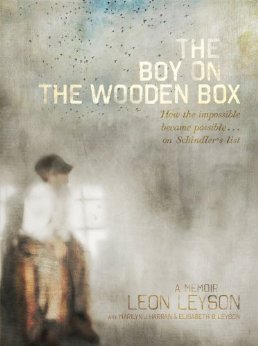What do you think?
Rate this book


231 pages, Hardcover
First published August 27, 2013
༊*·˚ “One time when we were in Płaszów a guard struck my mother on the side of her head with a wood plank. The blow permanently shattered her eardrum. She said that for the rest of her life she could hear her two murdered sons calling to her in that ear.”
༊*·˚“Maybe I hadn’t really been ready to speak about my experiences until so many years later, or maybe people hadn’t really been ready to listen, or maybe both.”
༊*·˚“I never forgot his definition of a hero. Campbell said that a hero is 'an ordinary human being who does the best in the worst circumstances.'”
༊*·˚“I, a Jewish boy, had to fight to live every day in those times. I had no choice. He, a Nazi with a lot of power, did have options. He could have abandoned us countless times, he could have fled taking his fortune with him. He could have decided that his life depended on working us to death, but he didn't. Instead, he put his own life in danger every time he protected us, for no other reason than because it was the right thing to do. "I'm not a philosopher, but I think Oskar Schindler is the definition of heroism. He showed that one person can stand up to evil and make a difference."